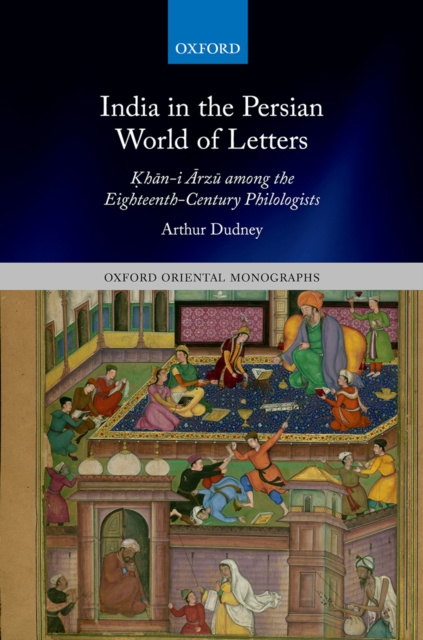
Doručení
Nákupní rádce





Nehodí se? Vůbec nevadí! U nás můžete do 30 dní vrátit
 Dárkový poukaz
V libovolné hodnotě
Dárkový poukaz
V libovolné hodnotě
S dárkovým poukazem nešlápnete vedle. Obdarovaný si za dárkový poukaz může vybrat cokoliv z naší nabídky.
India in the Persian World of Letters
 Angličtina
Angličtina
 231 b
231 b


This is an open access title available under the terms of a CC BY-NC-ND 4.0 International licence. It is free to read at Oxford Scholarship Online and offered as a free PDF download from OUP and selected open access locations. This book traces the development of philology (the study of literary language) in the Persian tradition in India, concentrating on its socio-political ramifications. The most influential Indo-Persian philologist of the eighteenth-century was SirA j al-DA n 'AlA KhA n, (d. 1756), whose pen-name was A rzA . Besides being a respected poet, A rzA was a rigorous theoretician of language whose Intellectual legacy was side-lined by colonialism. His conception oflanguage accounted for literary innovation and historical change in part to theorize the tA zah-go'A [literally, "e;fresh-speaking"e;] movement in Persian literary culture. Although later scholarship has tended to frame this debate in anachronistically nationalist terms (Iranian native-speakers versus Indian imitators), the primary sources showthat contemporary concerns had less to do with geography than with the question of how to assess innovative "e;fresh-speaking"e; poetry, a situation analogous to the Quarrel of the Ancients and the Moderns in early modern Europe. A rzA used historical reasoning to argue that as a cosmopolitan language Persian could not be the property of one nation or be subject to one narrow kind of interpretation. A rzA also shaped attitudes about rea htah, the Persianized form ofvernacular poetry that would later be renamed and reconceptualized as Urdu, helping the vernacular to gain acceptance in elite literary circles in northern India. This study puts to rest the persistent misconception that Indians started writing the vernacular because they were ashamed of their poor grasp of Persian at the twilight ofthe Mughal Empire.
Informace o knize
 Angličtina
Angličtina
Kategorie




 Jak nakupovat
Jak nakupovat















